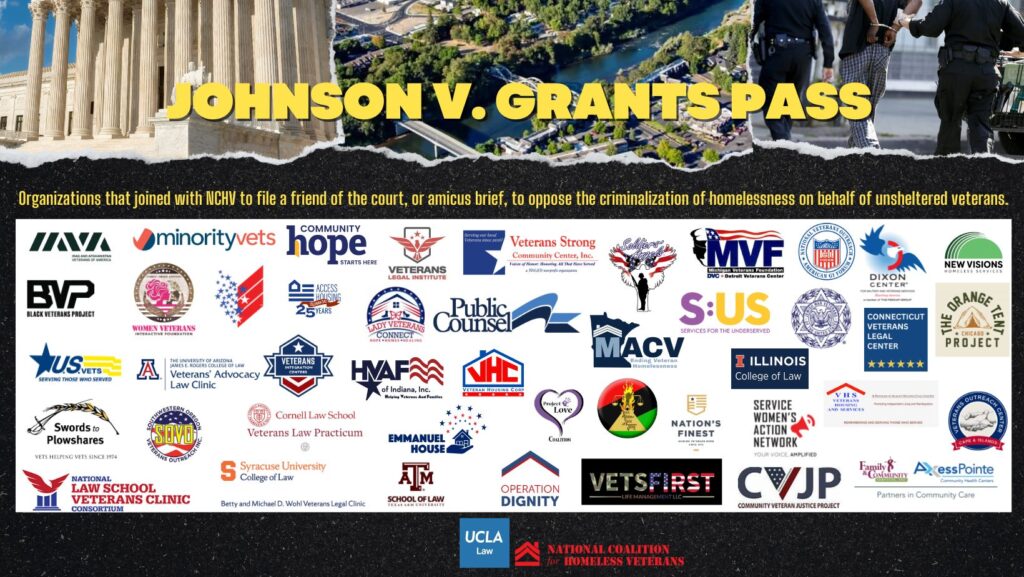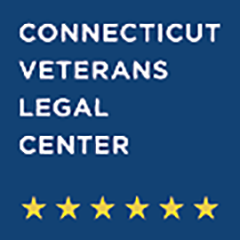CVLC News
CVLC joins in Amicus Brief in Johnson v. City of Grants Pass
There is no doubt: Veteran homelessness remains a rising crisis in this country. Homelessness is not a crime and no one should be criminally punished for being unsheltered.
Connecticut Veterans Legal Center is proud to unite with our colleagues across the country in submitting an amicus brief before the US Supreme Court as it considers Johnson v. City of Grants Pass. The amicus quotes our important research on racial discrimination in discharge upgrades (link opens as pdf), which can cause cascading effects leaving Black Veterans even more suspectable to homelessness than their white peers. You can read the amicus brief here (opens as Google doc in new tab).
Read the full press release below to learn more.

45 Organizations Unite to Oppose the Criminalization of Unsheltered Veteran Homelessness
Stakeholders urge SCOTUS to understand the needs of unsheltered veterans and Americans
Washington D.C. – Today, the National Coalition for Homeless Veterans (NCHV) and the UCLA Law School’s Veterans Clinic united with 43 partners to file an amicus brief before the U.S. Supreme Court.
A historic Supreme Court case, Johnson v. City of Grants Pass, threatens to unleash a wave of criminalization of unhoused veterans and others across the country. On April 22, 2024, SCOTUS is set to hear opening arguments and ultimately decide whether cities can impose civil or criminal penalties on unhoused people for sleeping outside, even in the absence of shelter space.
On any night in 2023, there were 35,574 veterans experiencing homelessness in America. Further, unsheltered veteran homelessness increased by 14.3 percent since the prior year, compared to a 9.7% increase in the civilian population. A ruling in favor of civil and criminal penalties would bring dire consequences for unsheltered veterans, and detract from our ability to decrease veteran homelessness across the country.
“The Court must understand, through this brief, that their ruling could have dire consequences for unsheltered veterans” said CEO of NCHV, Kathryn Monet. “It is absurd to think that the use of civil penalties against veterans and others experiencing homelessness will do anything other than harm people for being impoverished and make it harder for them to get back on their feet. The justices must rule in a way that reflects the humanity of all Americans, no matter where they lay their head to rest.”
“I spent 5 years in the Army and did two tours in the Middle East,” said Gabriel Henriquez, 2nd year UCLA Law Student and Brief Co-author. “When I had the opportunity to come to UCLA Law, I said that I would use my education and the skills I gained here to give back to my community and this is an excellent opportunity to do just that. Most importantly, this is a crucial chance for the Supreme Court to learn about the lived experiences of unhoused veterans, who face banishment and dehumanization by local jurisdictions.”
“I came to law school wanting to uplift underserved groups and it’s been a real privilege to be able to serve this community,” said Atreyi Mitra, 3rd year UCLA Law Student and Brief Co-author.
Read the brief here.
